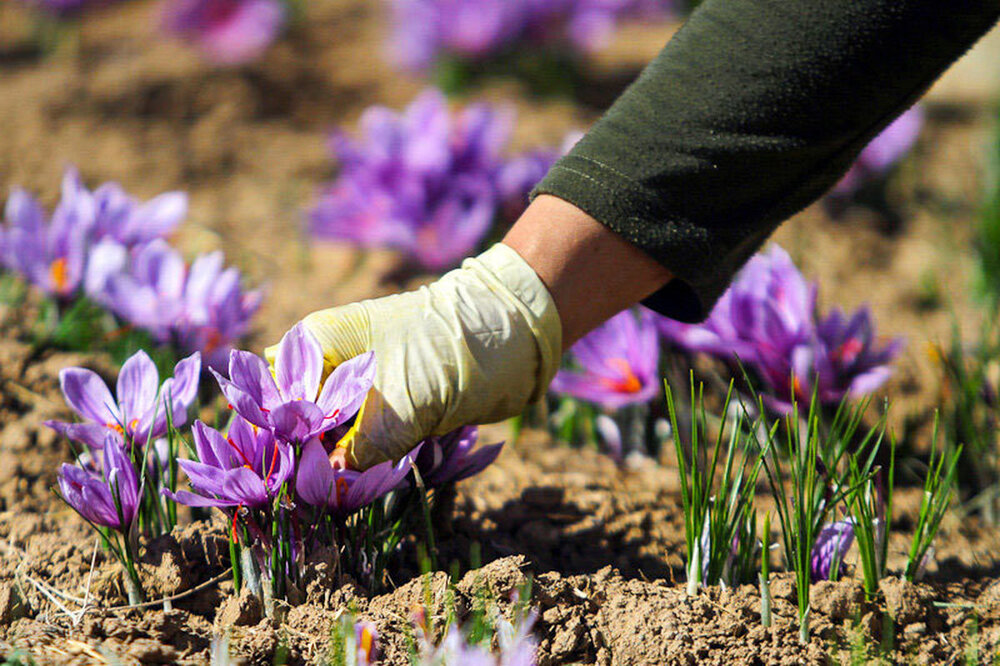‘Red gold’ farming to amplify tourism in southwestern Iran

TEHRAN- Saffron farming has been amplified in the tourist areas of the southwestern Kohgiluyeh and Boyer-Ahmad province with the aim of developing agritourism in the region.
Saffron production and harvest, which started about five years ago [across the province], have increased during the first half of the current Iranian calendar year 1399 (March 20 - September 20), provincial tourism chief Majid Safai said on Saturday.
So far saffron bulbs have been harvested from over eight hectares of farms in Kohgiluyeh and Boyer-Ahmad, the official added.
He also noted some five kilograms of saffron are harvested from each hectare.
Saffron festivals are scheduled to be held in the province after the end of the coronavirus outbreak in the country, he explained.
Iranian saffron is known as the “red gold”. Saffron is a magical ingredient in Persian culture, from aromatic foods and colorful desserts to physical and spiritual medicine. Every year, the saffron harvest season begins in early November. While most other vegetation is gone, the bright purple flowers cover the fields and create an outstanding landscape in dry regions in Iran.
Major saffron producers of Iran are located on the east side of the country. If you would like to see the biggest market, head to Mashhad, which is also known for its religious importance.
Agritourism and nature-tourism enterprises might also include outdoor recreation (fishing, hunting, wildlife study, horseback riding), educational experiences (cannery tours, cooking classes, or tea or coffee tasting), entertainment (harvest festivals or barn dances), hospitality services (farm stays, guided tours, or outfitter services), and on-farm direct sales (u-pick operations or roadside stands).
Today, agritourism is regarded as a stimulus to the imbalanced economy of agriculture sectors and the tendency for emotional and nostalgic roots of the modern world citizens and due to factors such as visitor participation in farm activities, direct purchase of products, spending a night at a farm, curiosity and learning about the farm and agriculture products has been able to create a wide target population.
Kohgiluyeh and Boyer-Ahmad province is known for its nomads and nomadic life. Sightseers may live with a nomadic or rural family for a while or enjoy an independent stay and assist them with day-to-day life. It also opens up an opportunity to feel rustic routines, their agriculture, traditions, arts, and culture.
ABU/AFM
